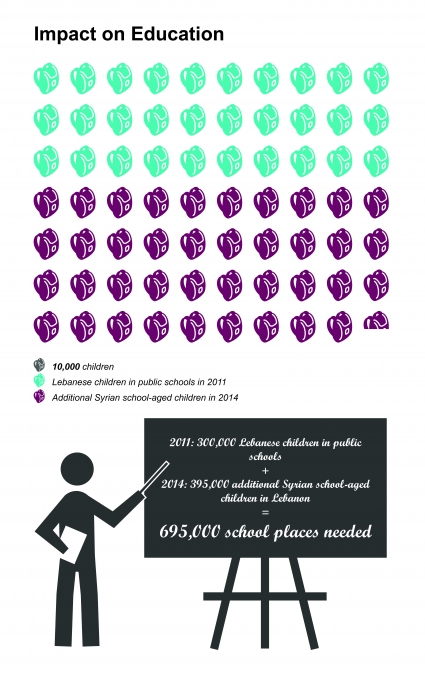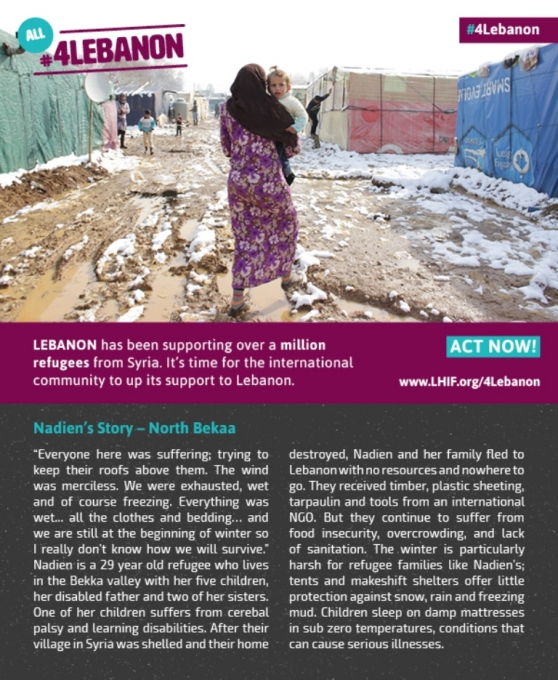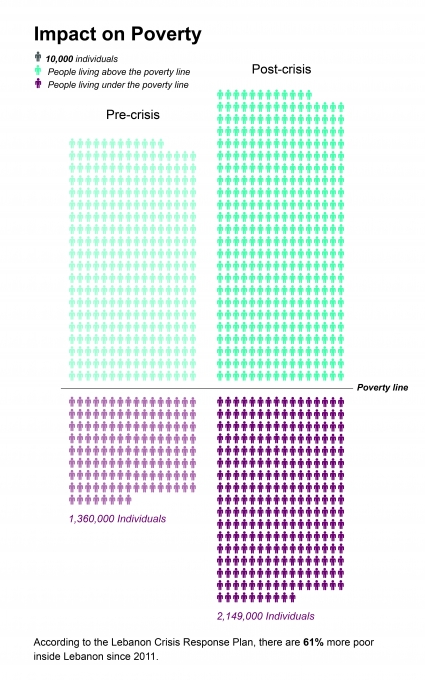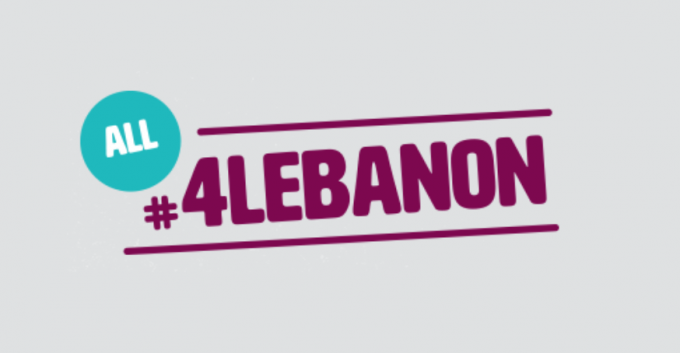The International Community Must Step Up its Support #4Lebanon
A core group of INGO's working in Lebanon, including Save The Children, have launched a major campaign to raise awareness about the urgent humanitarian situation in Lebanon. The campaign which was coordinated by the LHIF and the core working group includes a website, info-graphics and abundant social media traffic. The campaign coincides with the Lebanon Crisis Response Plan that the UN is launching this week.
As we approach the 4th anniversary of the crisis in Syria, neighboring countries like Lebanon are struggling to cope with rising numbers of refugees. Over 3 million refugees have now been forced to flee the brutal conflict, with 1.2 million seeking sanctuary in Lebanon and reliant on humanitarian aid. Despite the unprecedented scale of the refugee crisis, which threatens the stability of the entire region, the international response has been woefully lacking.
(click campaign logo for website)
This week, the UN launches the Lebanon Crisis Response Plan – part of a new plan to support refugees and build the resilience of communities across the region to cope with the crisis – calling for $2.14 billion to support critical humanitarian and development programmes in Lebanon. Although Lebanon hosts more refugees per capita of any country in the world, the response in Lebanon is shockingly under-funded. A nation of only 4.4 million people, Lebanon hosts more refugees per capita than anywhere else in the world. Now its infrastructure and public services are under extraordinary strain and poor and vulnerable communities are paying the price. Many refugees who fled the bloody conflict in Syria, are at the end of their ability to cope, with conditions rapidly deteriorating.
The international community needs to step up. The lack of donor funding in has been clearly evident this month with WFP being forced to temporarily suspend food aid to some 1.7 million Syrian refugees. Supporting Lebanon now can make a critical difference both for the millions of people in need, and ensuring Lebanon’s stability is maintained.



 Lebanon
Lebanon 